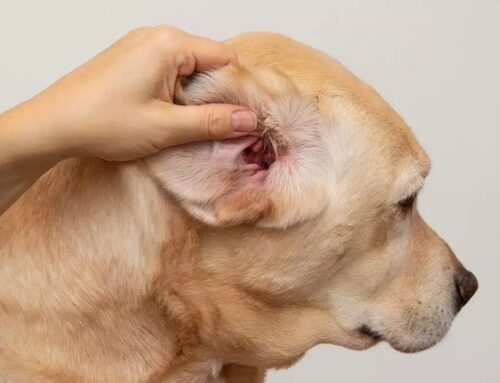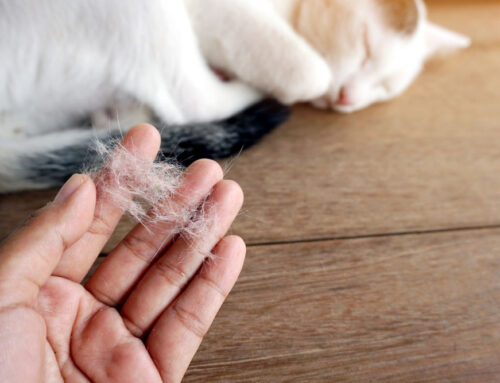Cats are highly sensitive creatures and are particular about any changes in their environment and routine. Minor disruptions can be extremely stressful, and cat owners need to know feline stress signs and how to help their cat adjust to change. Our team at WesVet Animal Hospital shares common causes and signs of stress, and solutions for fretting felines.
What can cause stress for my cat?
Cats are creatures of habit who do not always react well to change. The following situations can be stressful for your cat, but they can be solved.
- Moving to a new home — Moving is stressful for every household member, including your pets. Your cat knew your previous home well, and may feel insecure in the new home’s unfamiliar surroundings.
- Solution — The commotion of moving can also be stressful for your cat, so consider leaving them with a friend until you have completely moved and settled, and then gradually introduce them to their new home.
- A new pet — Cats are territorial and take ownership of their space, and the arrival of a new pet—especially another feline friend—can make your cat anxious.
- Solution — Help your current cat adjust by keeping pets separated for a few days or weeks, and introducing them gradually.
- Traveling — Many cats do not like their carriers or traveling, whether you go around the block or across the country.
- Solution — Help your cat be comfortable and less stressed by first letting them get used to their carrier at home. Leave the carrier open in a common area, and place treats, catnip, and toys in the carrier.
- A new baby — A new baby brings strange smells and sounds that can be confusing and stressful for your cat.
- Solution — Help your cat adjust to their new housemate with plenty of attention and a quiet place where they can escape when your baby cries.
- Inappropriate handling — Most cats are quick to let you know they’re not happy with being handled, but some keep their feelings to themselves, and then suddenly show their displeasure.
- Solution — When petting your cat, ensure they can easily remove themselves from the situation and never restrain them.
- Too few litter boxes — Cats don’t like to share their resources—especially their litter box. If you have a multicat household, ensure every cat has their own litter box.
- Solution — A good rule of thumb is one litter box for every cat, plus one extra.
- House guests —House guests with strange faces and unfamiliar smells who bring increased noise and activity for extended time periods and can be stressful for your cat, who likes to feel in control of their environment.
- Solution — Ensuring your cat has a comfortable place where they can escape the chaos can make them less anxious.
- Fireworks — Dogs aren’t the only pets affected by fireworks. Many cats also become stressed from the loud noises and bright lights, and may try to hide or bolt out the door.
- Solution — Provide your cat with a quiet, safe area during a fireworks display. Highly stressed cats may benefit from veterinarian-prescribed anti-anxiety medication.
What are the signs my cat is stressed?

You need to be familiar with your cat’s habits, so you can recognize behavioral changes that may indicate they are stressed. Once you identify the signs and rule out any underlying health issues, you can work on alleviating the stressors and helping your cat relax. Stress signs may include:
- Urinating outside the litterbox — Inappropriate elimination is a common side effect of stress in cats. If your cat has suddenly started avoiding the litter box, they may be experiencing stress or have an underlying medical condition.
- Increased vocalization — Some cats are naturally quite vocal, but if they suddenly increase the frequency, degree, or volume, their vocalization may indicate discomfort, stress, or a health condition.
- Digestive issues — Stress may cause digestive issues such as vomiting or diarrhea, which can lead to dehydration.
- Increased sleeping — Cats typically sleep much of the day, but if you feel that your cat is sleeping more than usual, that may be a stress-coping mechanism.
- Decreased appetite — Stressed cats may suddenly lose interest in eating their usual amount of food, or may stop eating altogether.
- Excessive grooming — When cats groom themselves, endorphins are released, so your feline friend no doubt finds grooming a pleasant activity. Stressed cats may begin overgrooming to relax, licking themselves raw, or pulling out hair.
- Decreased socialization — Stressed cats tend to hide and shun interaction with you or other household pets, and may become aggressive if you try to force them to come out and play.
The best way to know if your cat is stressed is to watch closely for major behavior changes. If you are concerned about your cat’s behavior and suspect they are suffering from stress, contact our WesVet Animal Hospital team to rule out an underlying health condition and find the reason for their stress.







Leave A Comment